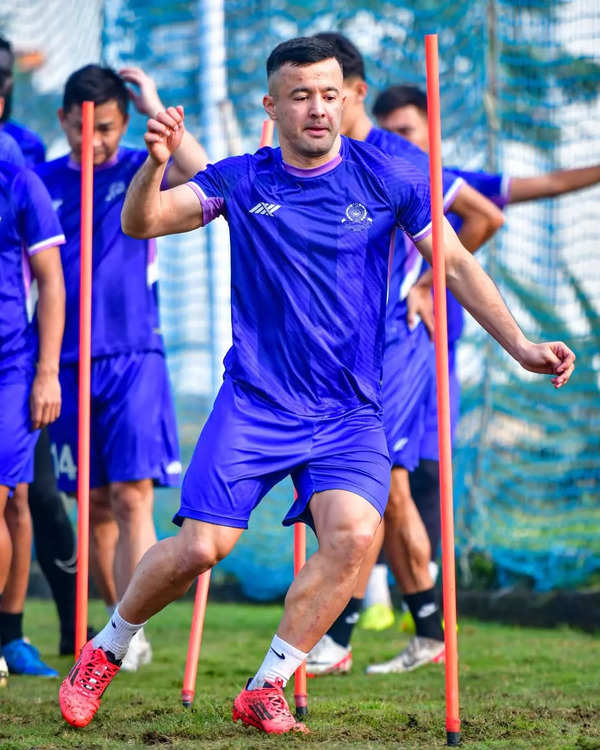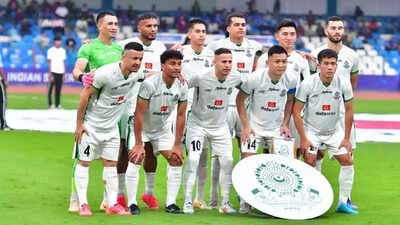NEW DELHI: As they say, there is no dull day in Indian football. The latest drama is taking place at Mohammedan SC. Reports emerged on Tuesday from Kolkata’s Vivekananda Yuba Bharati Krirangan claiming that Mohammedan players boycotted training ahead of their Indian Super League (ISL) home game against Chennaiyin FC, scheduled for January 15. The players were allegedly protesting against three-month unpaid wages.
It was further suggested that while the club management had committed to clearing the dues by January 15, players reportedly decided to abstain from training due to a lack of concrete steps from the administration.
This news surfaced amid Mohammedan’s resurgence in the ISL, riding on a three-match unbeaten streak. As the team stands second-last on the table, with Hyderabad FC below them, coach Andrey Chernyshov has been working tirelessly to turn their season around.
Go Beyond The Boundary with our YouTube channel. SUBSCRIBE NOW!
Amid the cub’s resurrection, the report of players boycotting training sessions over unpaid dues has raised eyebrows. However, Mohammedan SC have dismissed the rumours.
In an exclusive interview with TimesofIndia.com, Mohammedan SC General Secretary Ishtiaque Ahmed, famously known as Raju around the Maidan region, categorically refuted the claims.
“The reports that have come out are all fake and baseless, and they are being fabricated and posted on Facebook. There is no such issue as players not receiving their payments; all players are being paid. If players were not being paid, how would we be signing new players?” said Ahmed.
Despite challenges on the pitch, the Kolkata-based club has been actively reinforcing their squad in recent times. During the current transfer window, MDSC have secured several promising talents, including domestic standouts like Manvir Singh, Mahitosh Roy, Santosh Trophy winner Robi Hansda, and Juwel Ahmed Mazumder.
Additionally, foreign signings such as Florent Ogier and Marc Andre Schmerböck have also been added to their ranks. TimesofIndia.com understands that the club is still in pursuit of another striker before the window shuts.
Ahmed further clarified the status of training sessions: “Training is ongoing, and it is happening as usual. All the players are attending the training sessions.”

However, addressing the speculation about finances, Ahmed explained recent changes in the club’s payment structure: “Our payment structure has been changed. Previously, we used to make advance payments to the players before the month ended. But now, we need results. It’s not feasible that the investors keep making payments without getting results in return.”
The shift in approach extends to the incentive system as well. Ahmed elaborated, “By structure, we mean the incentive system we had. Previously, we provided incentives to all the players. Now, it has been decided that only players who perform well will receive incentives. The players have also been informed that if they do not perform well, their incentives will be cut.”
Not all squad members have been actively participating in the ISL, with some sidelined due to injuries or suspensions. This has naturally influenced the club’s approach toward incentive payments.
“Last month, advance payments were not made, but the payments for the previous month have been cleared this month. Previously, we used to make advance payments, but now that is no longer happening.”
Perhaps the decision to pay players at the end of the month might serve as a motivating factor to inspire better performance, believes the club secretary.
On the other hand, refuting the rumours about players boycotting training, Ahmed clarified, “All the players are attending training. The reports that are circulating are speculating that players didn’t show up due to financial reasons, but that’s not true. Some players were given rest, and some were dealing with injuries, which is why the coach didn’t include them in practice sessions.”
Ahmed also confirmed that there were no hidden financial issues grappling the club: “There are no financial difficulties. If there were any, we would definitely address them openly. Why wouldn’t we say it?”


